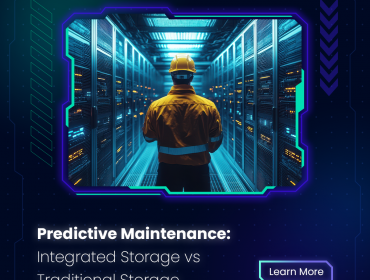This is the time that can be regarded as an Artificial Intelligence revolution that the world is witnessing. Now with that notion and the trend of every company doing all it takes to adopt the changing technology, If your company isn’t mining data, shoving it into a neural network, and marketing its advanced AI capabilities, you’re already behind the curve… Right? Not quite.
There is a similar thought process related to the machine learning technology. The more powerful the model, the tougher it is to interpret its inner workings, structures, functionalities and processes. You might get a more accurate answer from a computing neural network, but how it arrived at that answer may be a total mystery to the people who interpret the findings. This can be a problem when trying to figure out what went wrong with certain predictions and calculations or how to improve it and make it more accurate and precise.
Deep learning is Artificial Intelligence’s most promising lines of research.
Deep Learning is a sophisticated, specific type of Machine Learning software in which algorithms process large amounts of data and then analyse insights from patterns within it. This data can be customer behaviour, patterns of buying, surfing the internet, pausing at a particular advertisement while scrolling the Facebook feed, images, sound files, video, maps, sales figures and so much more the world is generating in almost every field – provided the data is structured appropriately; the possibilities are endless.
3 Departments Where Deep Learning Can Make a Big Difference
To get some ideas for where you can deploy deep learning, let’s review a few critical areas in which deep learning is likely to shine.
- Marketing
Because modern marketing manages customer interactions at every step in the buying funnel, marketing departments typically have large data sets and are positioned to benefit from deep learning.
In the simplest case, deep learning can replace traditional heuristics-based lead scoring. But that’s just the start. Because it can consider many interconnected factors, deep learning can deliver significant returns across a variety of data points that are unique to your marketing needs.
- Sales
Sales teams can also exploit deep learning’s power for customer predictions. Because it can make use of unstructured data across a variety of sources, sales leaders can not only identify a good-fit potential customer, but also predict the possible deal size, deal cycles, and other insights.
Traditionally, unsupported human judgment and some guesswork was needed to decide how to manage customer interactions. Now, through deep learning, your team can match representatives to the deals they’re most likely to close; determine the time, day, or season that drives the most success; and evaluate the customer and seller interactions that are most likely to lead to a close. Overall, AI technology has the potential to increase worldwide sales by up to $2.6 trillion in value, according to one report.
- Finance
Financial firms that take significant risks (e.g., credit card companies) build comprehensive models to determine how likely a person or company is to default on payment, how much they’re likely to spend, etc. While credit scores might be drivers at the consumer level, many factors determine how much of a credit line to extend that cannot be adequately captured by typical data analytics.
Because deep learning is designed to analyze complex multifactor scenarios effectively, it is a natural solution for creating highly predictive risk models. For this reason, big firms are beginning to employ large data science teams staffed with experts who leverage deep learning.
For instance, machine learning is being used by multinational insurance giant AXA to predict major traffic accidents with 78 percent accuracy. The accuracy of the predictions allows them to price optimally based on factors like each driver’s age, his or her address, and the car’s age.
These are just a few of the areas in which deep learning will be making strides in the near future, but we’re just beginning to explore the myriad uses for this technology. That’s why forward-thinking companies aren’t missing the opportunity to get their approach in place now.
Indeed, in a marketplace racing toward a future in which deep learning is critical to the success of all significant business operations, there will be few second chances for companies that don’t play ball.











